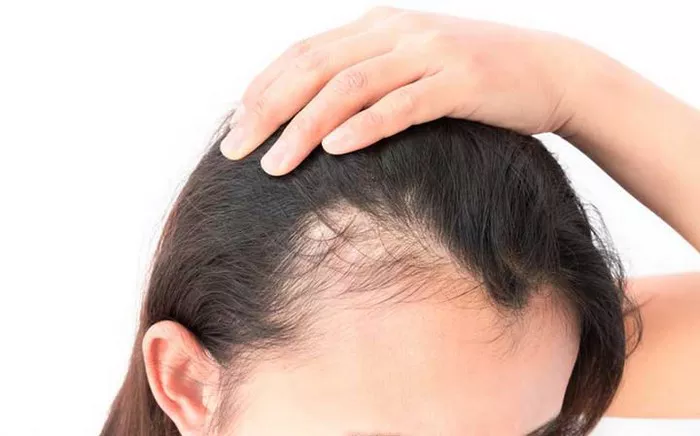Hair loss is a common concern for both men and women, and it can occur for various reasons. One significant aspect to consider is when hair falls from the roots. The hair follicle, located beneath the skin’s surface, plays a crucial role in hair growth. When hair loss happens from the roots, it can be indicative of underlying issues that warrant attention and understanding.
The Anatomy of Hair Follicles:
To comprehend what occurs when hair falls from the roots, it’s essential to delve into the anatomy of hair follicles. Hair follicles are small, tube-like structures found in the skin. Each follicle is responsible for producing a single hair strand. The root of the hair is situated within the follicle, anchored in the hair bulb. This bulb contains cells that divide rapidly, forming the hair shaft as new cells push the existing ones upward.
Normal Hair Growth Cycle:
Understanding the natural hair growth cycle is crucial in grasping why hair may fall from the roots. The hair growth cycle consists of three phases:
Anagen Phase: This is the active growth phase where cells in the hair bulb divide rapidly, and the hair shaft emerges from the follicle.
Catagen Phase: In this transitional phase, hair growth slows down, and the hair detaches from the blood supply. The follicle starts to shrink.
Telogen Phase: The resting phase where the old hair is shed, and the follicle remains dormant before re-entering the anagen phase.
When hair falls from the roots, it typically means disruption or abnormalities in this cycle.
See Also: Will Thinning Hair Grow Back: Everything You Need To Know
Common Causes of Hair Loss from the Roots:
Several factors can contribute to hair loss from the roots, ranging from genetic predisposition to lifestyle choices and medical conditions.
Genetic Factors: Hereditary conditions like male and female pattern baldness can lead to hair loss from the roots. This type of hair loss, known as androgenetic alopecia, is a result of a genetic predisposition.
Hormonal Changes: Hormonal fluctuations, such as those that occur during pregnancy, childbirth, menopause, or thyroid disorders, can impact the hair growth cycle and result in hair loss from the roots.
Medical Conditions: Certain medical conditions like alopecia areata, lupus, and diabetes can contribute to hair loss from the roots. These conditions often affect the immune system, disrupting the normal hair growth cycle.
Nutritional Deficiencies: Inadequate nutrition, particularly deficiencies in vitamins and minerals essential for hair health, can lead to weakened hair follicles and subsequent hair loss from the roots.
Stress and Environmental Factors: Excessive stress, both physical and emotional, can disrupt the normal hair growth cycle. Additionally, exposure to environmental factors like pollution and harsh chemicals can contribute to hair loss.
Impact on Hair Health:
When hair falls from the roots, it can have a significant impact on overall hair health. The absence of a healthy hair bulb, which is responsible for nourishing the hair shaft, can result in weakened and brittle strands. Additionally, repeated hair loss from the roots may lead to a reduction in hair density and volume over time.
Prevention and Treatment:
Addressing hair loss from the roots often requires a comprehensive approach. Identifying the underlying cause is crucial for developing an effective treatment plan. Here are some strategies to prevent and manage hair loss:
Maintain a Healthy Lifestyle: Adopting a balanced diet, staying hydrated, and managing stress can positively influence hair health.
Use Gentle Hair Care Products: Harsh chemicals in hair care products can damage hair follicles. Opt for mild and natural products to promote a healthy scalp.
Seek Professional Advice: If you notice persistent hair loss from the roots, consult a dermatologist or a healthcare professional. They can conduct a thorough evaluation to determine the cause and recommend appropriate treatments.
Medical Interventions: In some cases, medical interventions such as topical medications, oral medications, or surgical procedures may be recommended to address specific underlying issues.
Conclusion:
Understanding what happens when hair falls from the roots is crucial for anyone experiencing hair loss. Whether due to genetic factors, hormonal changes, medical conditions, or lifestyle choices, addressing the root cause is key to managing and preventing further hair loss. By adopting a holistic approach that includes lifestyle modifications, proper hair care, and seeking professional advice when needed, individuals can promote healthier hair and regain confidence in their appearance.


